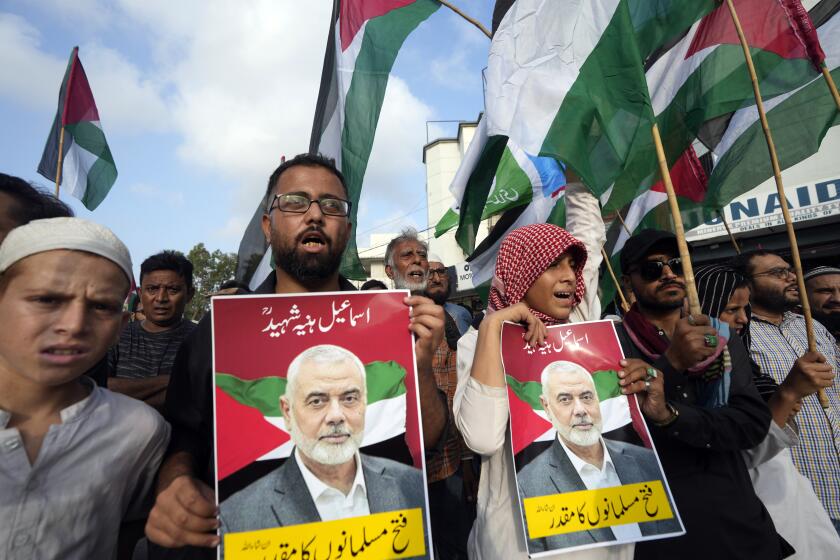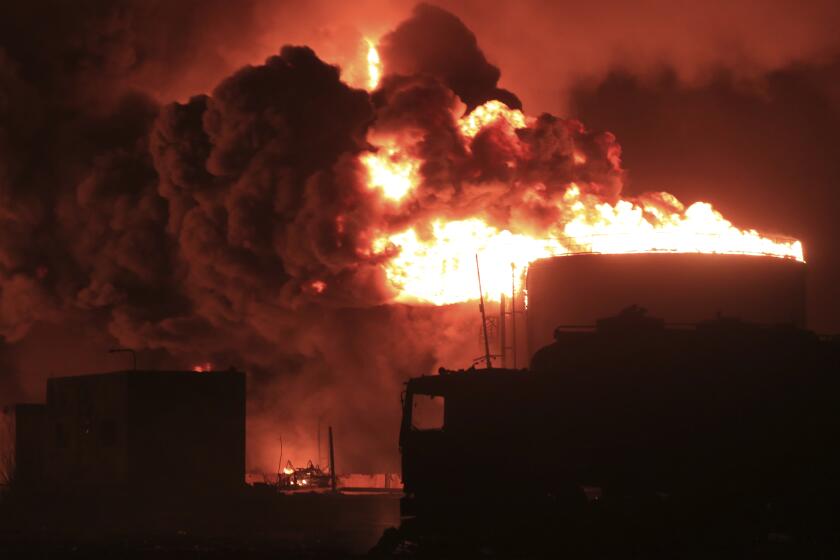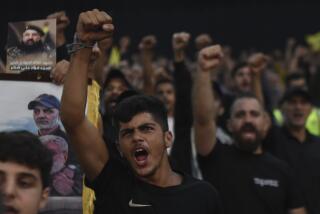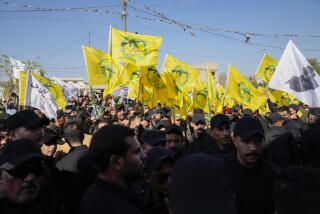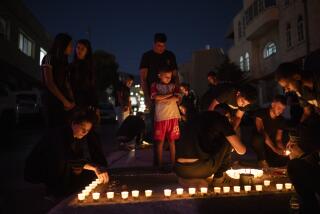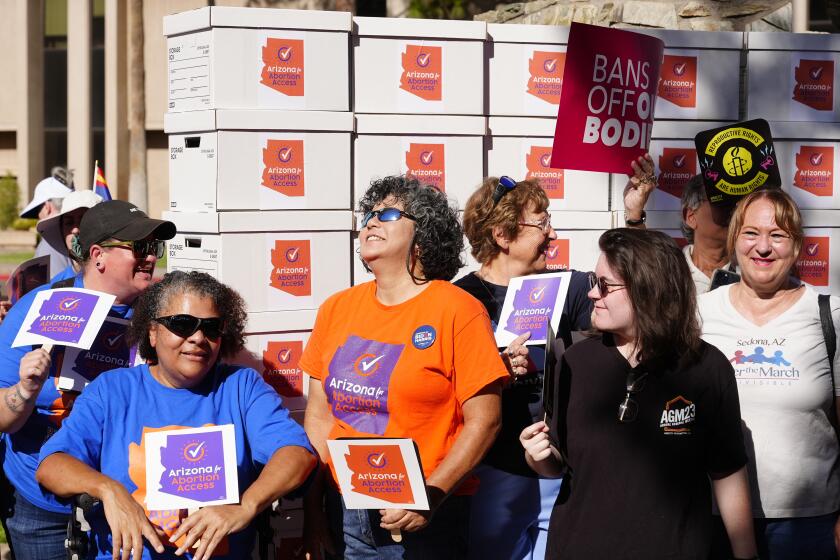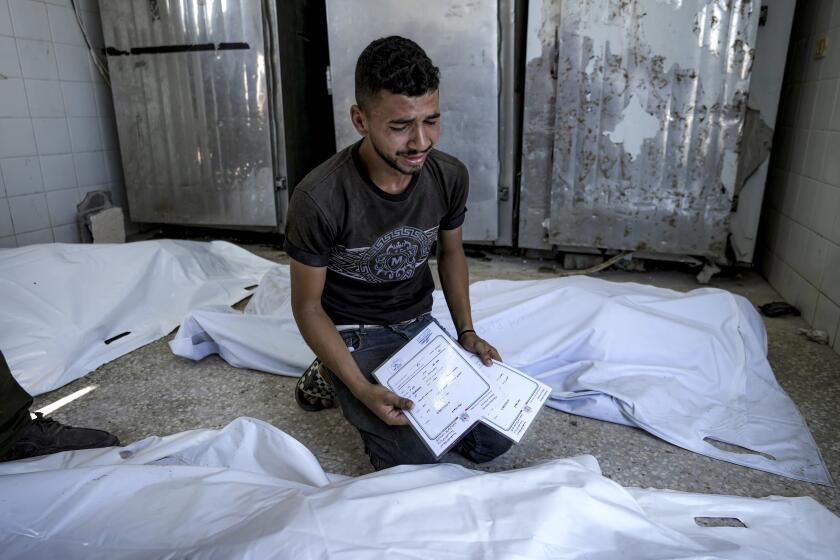Israel’s killing of Hezbollah leaders bring short-term gains, but may backfire in the end
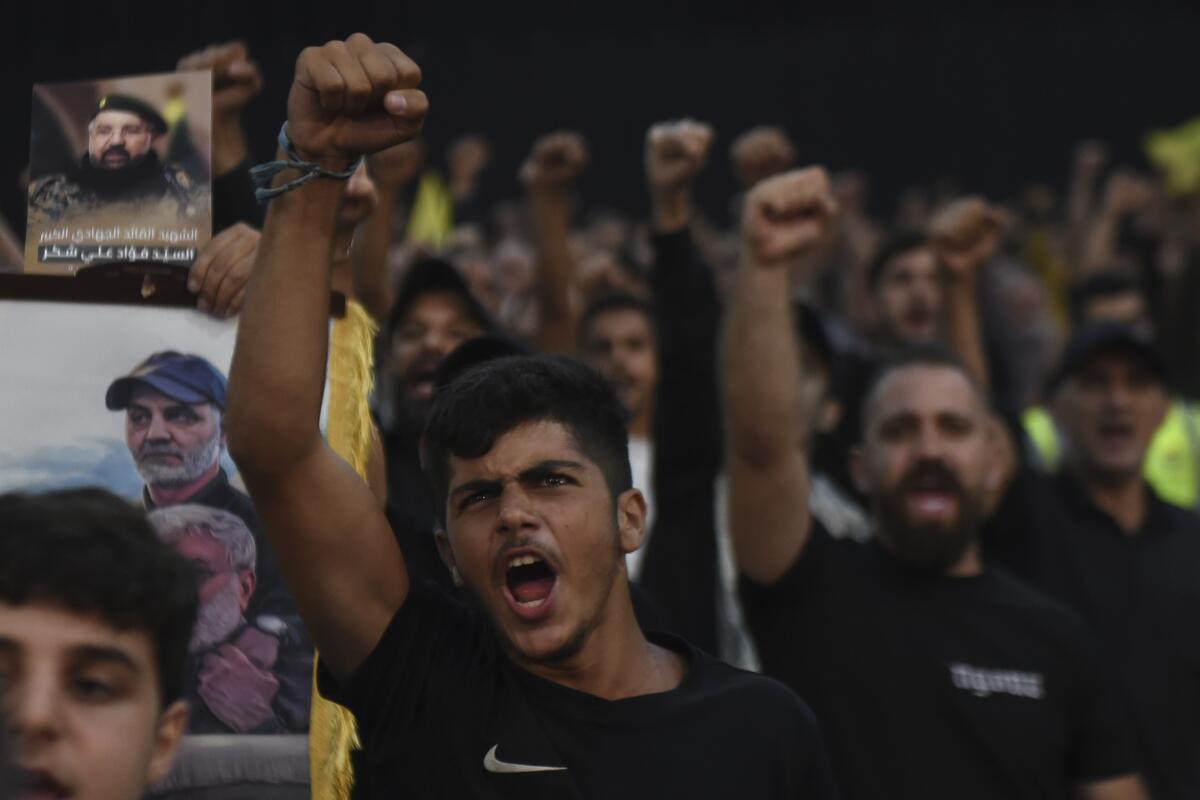
When Israel assassinated Hezbollah’s top military commander last month in a rare air strike in Beirut, it marked the highest-level loss for the group since 2008 and the most provocative act to date in renewed cross-border clashes that now threaten to spark another full-blown war between Israel and Lebanon.
Fuad Shukr’s assassination was part of a decades-old policy by Israel to disrupt its adversaries’ capabilities through targeted killings. Hours before the strike on Shukr, Hamas political leader Ismail Haniyeh died in a bombing in Tehran, an attack widely blamed on Israel.
Israel’s assassination campaign against Hezbollah intensified last fall, after the Iran-backed Lebanese Shiite paramilitary faction — which is also Lebanon’s most powerful political party — began firing thousands of rockets into northern Israel. Hezbollah said the offensive was in support of Hamas, which has been fighting a 10-month war with Israel following the Gaza-based Palestinian militant group’s Oct. 7 offensive that killed around 1,200 Israelis and captured 200 hostages.
In response to Oct. 7, Israel invaded Gaza, killing nearly 40,000 Palestinians, Gaza authorities say, and triggering a humanitarian crisis.
To its north, however, Israel has relied on its well-honed strategy of airstrikes and assassinations, killing more than 400 Hezbollah fighters and some two dozen Hezbollah commanders, including two senior division commanders serving under Shukr as well as high-ranking members of the Radwan Force, Hezbollah’s special forces contingent.
Israel says those losses have, one by one, degraded Hezbollah’s leadership ranks and diminished its fighting capability at a time when the two enemies may soon face each other in direct conflict. Israeli officials also say that those killed had “blood on their hands.”
Israel has assassinated two dozen Hezbollah commanders in Lebanon since last fall amid an intelligence war employing cellphones, drones and fake rocks.
The U.S. had a $5-million bounty on Shukr as the alleged architect of the 1983 Marine barracks suicide bombing in Beirut that killed 241 U.S. military personnel. Israel said he was responsible for a rocket attack last month that killed 12 children in the Israeli-occupied Golan Heights, a claim Hezbollah denied.
“Tonight, we have shown that the blood of our people has a price, and that there is no place out of reach for our forces to this end,” wrote Israeli Defense Minister Yoav Gallant in a post on X, the social media platform formerly known as Twitter, after the strike on Shukr.
Yet the impact of Israel’s strategy remains in question. In the short term, it may yield some results, analysts say, but a longer-term strategic victory is less certain.
That’s especially true when it comes to Hezbollah, said Hilal Khashan, a professor of political science at the American University of Beirut. Losses in its ranks “hurt Hezbollah, but they don’t really change anything in terms of the balance of power between it and Israel,” he said.
Hamas political leader Ismail Haniyeh was a key figure in negotiations to end Israel-Hamas war. How will the U.S. react?
The group can backfill any void from its fighting force, thought to number roughly 100,000. It can also rely on its patron Iran, which provides arms, training and military advisors. And though Hezbollah has increasingly come to be organized as a conventional army — an effort spearheaded by Shukr — it retains the decentralized structure of a militia.
“We know that each unit or cell can operate autonomously; they don’t have to refer to the central command for instructions,” Khashan said.
Hezbollah chief Hassan Nasrallah eulogized Shukr as one of the group’s first military leaders and acknowledged his death “was a very big loss for us.” So closely was he involved in the day-to-day running of the current fight with Israel that Shukr had called Nasrallah to give him updates less than an hour before he was killed.
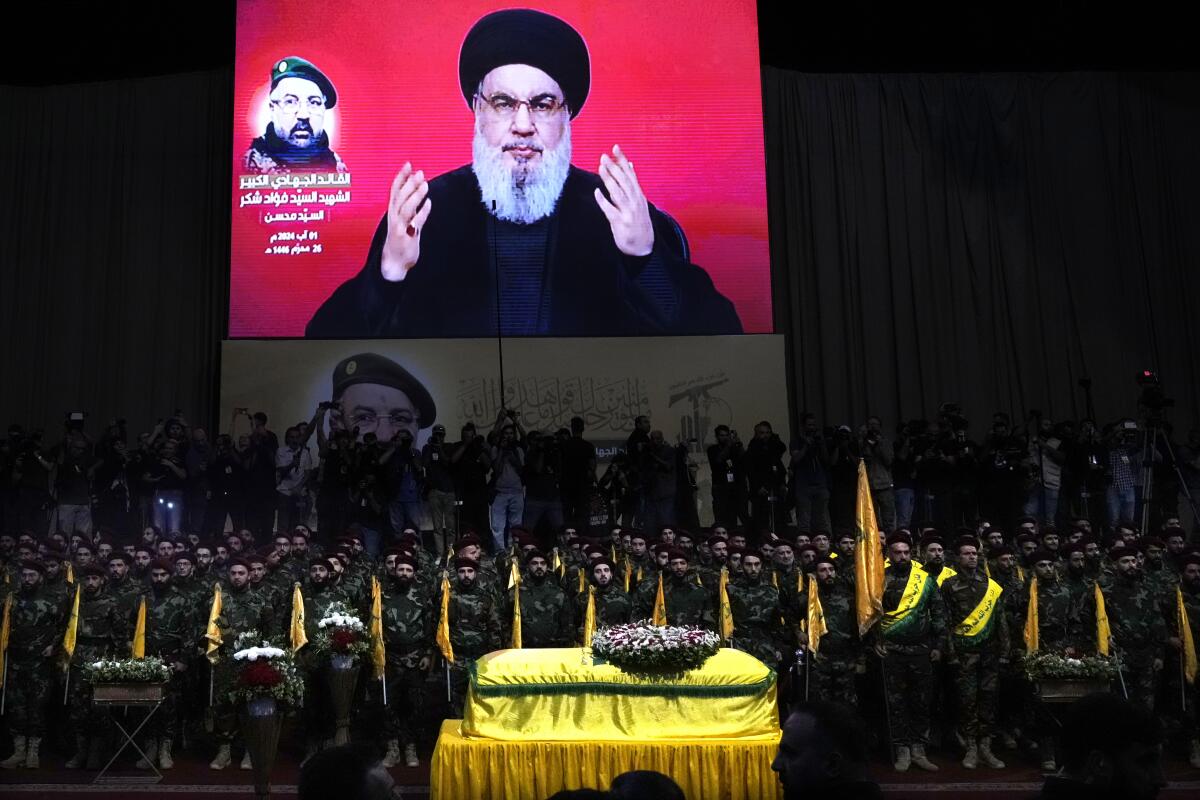
“There’s no question, this is an Israeli achievement,” Nasrallah said of Shukr’s assassination, vowing the group would retaliate soon. Nevertheless, it did not constitute an “absolute victory,” the Hezbollah leader said.
Even so, analysts say, Israel’s strikes have dealt an immediate blow to Hezbollah.
“Removing an entire cadre of top commanders out of any army — as Israel has systematically done over the past 10 months to Hezbollah — [is] almost certain to have operational consequences, should the dogs of regional war be loosed in the near term,” said John Hannah, a senior fellow at the Jewish Institute for National Security of America, a pro-Israel think tank in Washington D.C.
That Israel appears to have penetrated communications among Hezbollah’s upper echelons also serves to inject paranoia and caution inside the group, Hannah added.
Israel has effectively used the heightened tensions with Hezbollah as an opportunity to remove leaders, said Michael Knights, a researcher of Iranian proxy groups at the D.C.-based, pro-Israel Washington Institute for Near East Policy.
“If you want to seriously degrade the performance of a terrorist movement, there’s no substitute to killing their leaders,” he said. “It doesn’t necessarily show immediate effect, but you’ll want to do it anyway.”
The ramped-up assassinations also serve to boost the morale of an Israeli public still angry and traumatized by the Oct. 7 attack — which killed more Jews in any single day than any time since the Holocaust.
“If you’re trying to placate an internal constituency, it can be very effective,” said retired Israeli Brig. Gen. Jonatan Shimshoni. “You’re showing that you’re doing something, and since you’ve demonized the enemy, you’re chopping off the head of the snake.”
At the same time, some analysts dismissed any long-term gains from assassinations, and said many times they backfire by rejuvenating militant groups or ushering in new, more radical leaders.
Israel’s attack in Yemen — after Houthi rebels hit Tel Aviv — gives militant group the legitimacy it craved, experts say, as fears of regional war rise.
“This can refresh the organization, preventing it from getting older and injecting new blood,” said Mohanad Hage Ali, deputy director for research at the Beirut-based Malcolm H. Kerr Carnegie Middle East Center.
More generally, there’s little evidence that assassinations serve as a deterrent, said Jennifer Carson, who studied the impact of high-profile targeted killings on groups such as Al Qaeda.
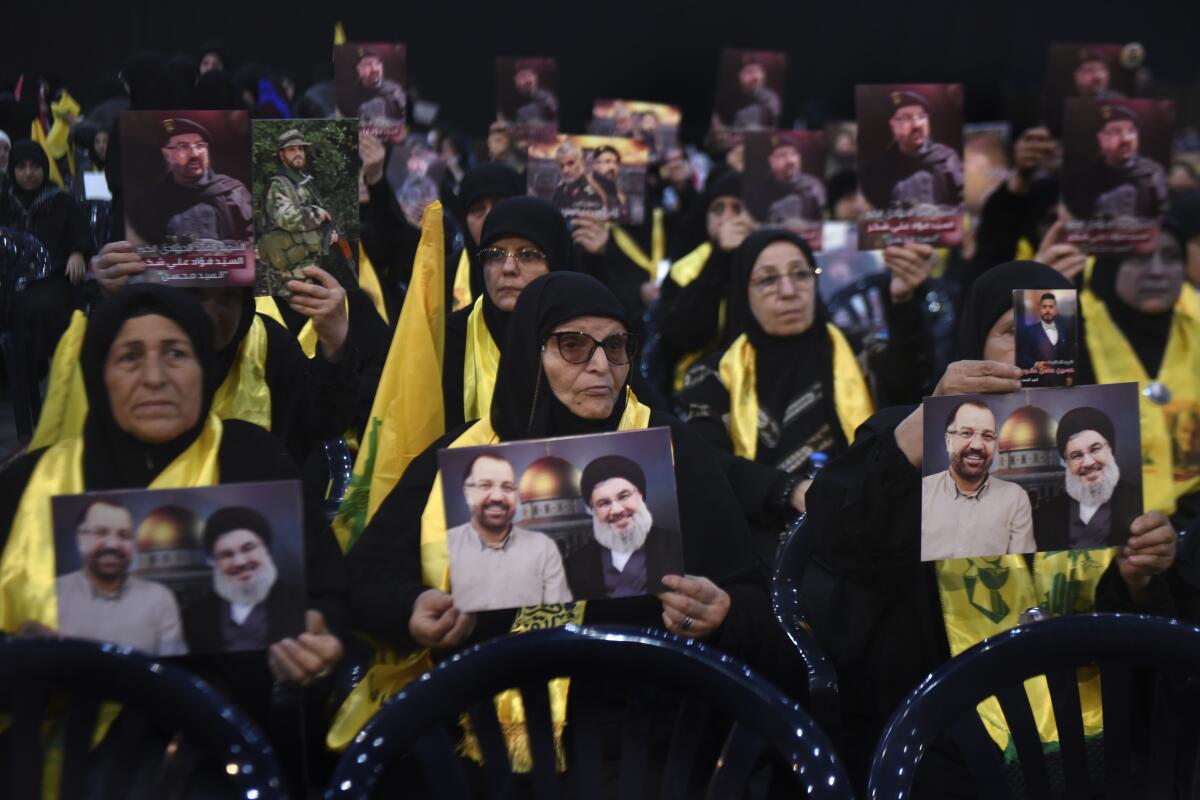
Decreasing the number of what she terms “motivated offenders” within an organization does not lead to a decrease in terrorist attacks, according to her research.
“And if you kill a leader, particularly if they’re beloved, that can rally a base, bringing increases in violence that pretty much wash out any benefits,” she said.
Such killings can also bring in more extreme replacements.
After the death of Haniyeh — who was leading Gaza cease-fire talks and was seen as a relative moderate — Hamas last week chose Yahya Sinwar, its leader in Gaza and one of the planners of the Oct. 7 attack, as the new head of its political politburo.
“When you’re speaking to replacement,” Carson said, “for every leader that is killed, there’s somebody more radical to replace them.”
Shimshoni, the retired Israeli general, added that with an adversary like Hezbollah, that is motivated, ideological and religious, decapitation strikes will have little strategic significance.
“In the Israeli case, the history of assassinations in this regard is basically not a success,” he said. “You either do not get the effect you want, or you’ll get counterproductive, unintended consequences.”
More to Read
Sign up for Essential California
The most important California stories and recommendations in your inbox every morning.
You may occasionally receive promotional content from the Los Angeles Times.

